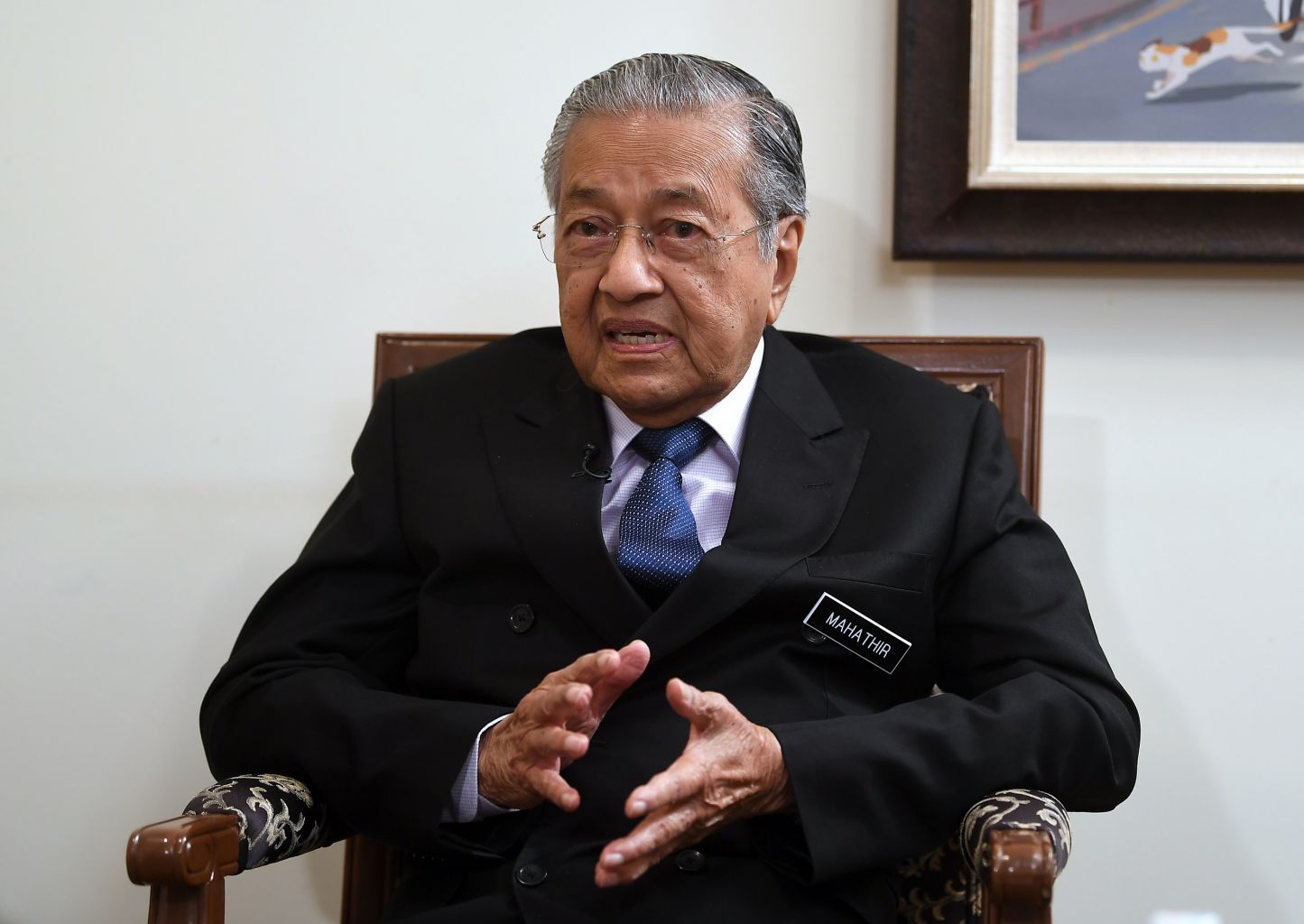Malaysia to train Bumiputera to be more competitive rather than spoon-feed them: Mahathir
Sign up now: Get insights on Asia's fast-moving developments

Malaysia's PM Mahathir Mohamad said it was time to change the practice and start "training" the bumiputeras to work harder to change their future.
PHOTO: BERNAMA
Gone are the days of the government "spoon-feeding" bumiputeras - Malaysia's dominant ethnic community - to ensure that they become more competitive and likely to succeed on their own, said Prime Minister Mahathir Mohamad.
Tun Dr Mahathir, in his keynote speech at a congress organised by his Pakatan Harapan government to discuss the future of the bumiputera -meaning sons of the soil - on Saturday (Sept 1), said it was time to change the practice and start "training" the bumiputeras to work harder to change their future.
"Cash aids like BR1M will only weaken us, we shouldn't wait for help to arrive. Rather, we should put in our own effort to overcome our weakness and change things," he said.
"We can pray, we can perform prayers, but if there's no effort, our skills can deteriorate. If we don't walk, our muscles will get weaker with time. It's the same as our brain, if we don't use it, it'll get weak too," he added.
The 1Malaysia People's Aid programme - known by its Malay acronym BR1M - was first implemented in 2012, when nearly 4.1 million people from lower-income groups received RM500 each.
The cash handout was raised to RM1,000 in 2016 and RM1,200 last year.
The Malaysian government on July 25 also said that it would review the decades-old affirmative action New Economic Policy (NEP) to align economic policies with needs and not race.
Economic Affairs Minister Azmin Ali was quoted by local news site The Star Online as saying: "We should... see how best our economic policies can benefit all Malaysians."
In the past, Dr Mahathir said business opportunities had been given to bumiputeras under the NEP, but many had sold their contracts and approved permits (AP) for quick money instead of investing in the business.
This clearly did not help the community in the long run as those who took over the contracts and APs became successful, while the original owners were left out after spending their quick profits from selling on the contracts.
"We (the government) have tried our best, but we found that the culture (among Malays) to make a quick profit had contributed to their own failure.
"The ones who succeeded were the non-bumiputeras, if you know what I mean," he added.
Malaysia introduced the NEP in 1971 after deadly racial riots in 1969, fuelled by anger over the economic gap between the Malays and Chinese.
Geared towards socio-economic restructuring and eliminating poverty, NEP gives ethnic Malays cheaper housing and preferential access to scholarships, government contracts and shares of listed companies.
The average household income of Malays has grown the fastest among the nation's major ethnic groups since the NEP was introduced, but it still remains the lowest in absolute numbers.
Dr Mahathir said he had visited many construction sites and noticed that not many bumiputera, especially Malays, were seen working there as engineers or hard labourers.
This, he said, raises the question of whether the bumiputera are willing to do the "dirty" job.
"It's either you want to do it or not. I'm really sad that when I visited these construction sites, like the Twin Towers, I don't see even one Malay working there," he said.
"The question remains, you can't or you don't want? Opportunities (to change own life) are aplenty, but at the end of the day, you can bring a horse to water, but you can't make it drink.
"Although there is a possibility of the government being ousted for this, it's okay, because we're not here to sabotage the lives of our own race," he added.
Responding to the a question on whether Chinese nationals would be allowed to buy property in Malaysia, the premier said that Malaysians may not be able to compete with the Chinese if millions of them were allowed into the country.
Dr Mahathir had recently said that foreigners would not be allowed to buy homes at the US$100 billion (S$136 billion) Forest City project in Johor, or granted visas to live there. The mixed development project by Chinese developer Country Garden Pacificview was marketed primarily to Chinese buyers and is planned to house 700,000 people when completed.
"If we bring three million of them from China, what will happen to us? They are hard working and intelligent and have knowledge in business," he said. "So, we have to admit our weakness and protect ourselves until we can compete with them."
He said that the government was willing to open the country to foreign direct investments from China, but not for their citizens to buy up land and control Malaysia's cities.
"What we want is a foreign investment - for them to set up factories and that the workers are Malaysians and not foreigners. It is not for them to own big lands and to develop luxurious cities that we cannot afford to live in," he said.


